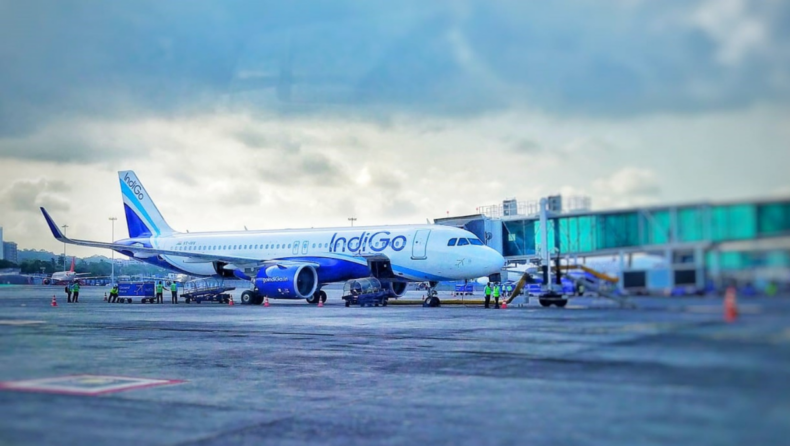As many people called in sick at the last minute, the IndiGo experienced a shortage of cabin crew, leading to delays. These individuals are reported to have been attending Air India’s recruitment drive.
Because a significant number of IndiGo’s cabin crew members failed to report for work on Saturday, the airline was forced to significantly delay more than half of the flights it was responsible for operating. According to some sources, the individuals in question attended job interviews but then called in sick at the eleventh hour, putting the running of the airline in jeopardy. Tata owned Air India, Jet, and Akasa–all these companies are in the middle of conducting extensive hiring campaigns.
Even though the airline is famous for its punctuality, only 45 percent of its flights took off on time; more than 850 flights took off more than 15 minutes after their scheduled time. On Friday, the airline operated approximately 1,600 flights but had to cancel approximately 50 flights due to weather. Passengers who were aggravated by the delays and the fact that many of them missed their connecting flight or train took to social media to vent their frustrations with the situation.
A delay in the first flight can have a domino effect on the rest of the network due to the fact that the airline operates every one of its aircraft for approximately 14 hours per day. It should be noted, for example, that Air India’s recruitment drive is taking place simultaneously in five of the country’s major cities—Delhi, Mumbai, Hyderabad, Bengaluru, and Kolkata. According to a person who is aware of the development, most of the delays happened at IndiGo’s largest base, Delhi, thus affecting the entire network.
A pilot for the airline who was flying out of Bengaluru reported that he had to wait inside the aircraft for two hours before the cabin crew members arrived. A flight on an IndiGo aircraft of the type A320 requires a minimum of four cabin crew members for a flight. In response to questions along these lines, the IndiGo spokesperson did not comment.
It is acceptable for crew members to report being sick up to five hours before a flight is scheduled to depart.
According to some sources, IndiGo’s management approached Air India about the matter and requested that the airline refrain from recruiting crew members without a no-objection certificate or relieving letter from the crew member’s current employer. In accordance with the rules of the DGCA, cabin crew members are required to provide a notice period of at least three months. Nevertheless, after receiving consent from the airline, it could be decreased. Spokesperson for Air India did not comment when asked about the matter.
Shortage in the aviation Industry
Because there is a shortage of trained manpower across the globe, the aviation industry has been struggling recently. People who lost their jobs in the airline industry because of the pandemic found work in other industries, particularly the hospitality industry.
As a result of people returning to air travel in large numbers after the COVID-19 pandemic, European airports are also experiencing massive disruptions, which are having an impact on the airlines.
Regulations in the aviation industry
It was denied by a senior executive working for IndiGo that the airline was experiencing a shortage of cabin crew members. However, the executive did explain that it is difficult to cover up sudden absences at the last minute. There is a sufficient crew, and in addition, they have personnel on standby in case anything unexpected occurs. However, aviation is a highly regulated industry in terms of work patterns, and he explained that it is impossible to cover up anything if a large number of crew members call in sick at the very last minute. IndiGo has increased its hiring efforts across all departments.
Because working on an airplane’s cabin crew is such a specialised position, new hires are required, according to regulations, to complete either a 30-day or 240-hour training programme before they are allowed to start working. Communication skills, how to respond to medical emergencies, and basic security are covered in the training.
In addition, regulations regarding fatigue management demand that no duty be assigned to a member of the cabin crew who has worked more than 65 hours over the course of the previous week or 210 hours over the course of the previous 28 days in a row.













